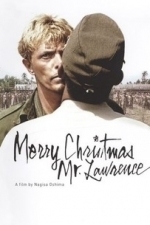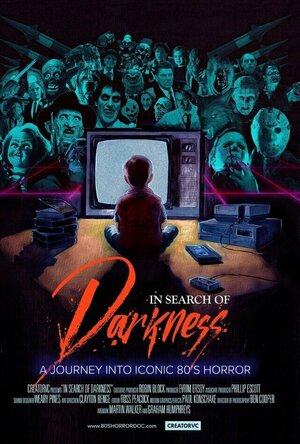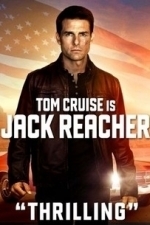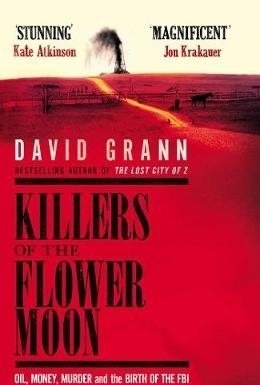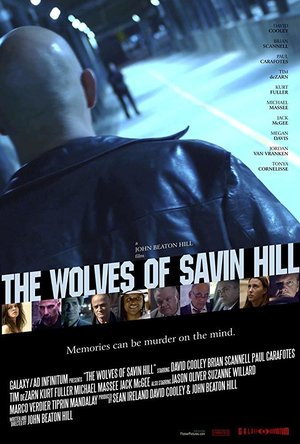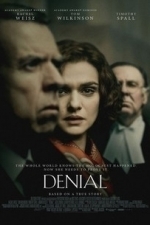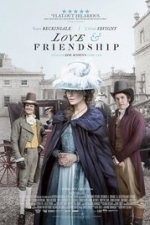Search
Search results
Christopher Nolan recommended Merry Christmas, Mr. Lawrence (1983) in Movies (curated)
Anthony Bourdain recommended Merry Christmas, Mr. Lawrence (1983) in Movies (curated)
Tracy Letts recommended Merry Christmas, Mr. Lawrence (1983) in Movies (curated)
LeftSideCut (3776 KP) rated In Search of Darkness (2019) in Movies
Aug 12, 2020
In short, In Search of Darkness is a must watch for any horror fan.
It's 4+ hour runtime is a gushing love letter to 80s horror, covering the decade year by year, with interviews from an impressive cast of genre icons - John Carpenter, Larry Cohen, Joe Dante, Barbara Crampton, Doug Bradley, Tom Atkins, Lori Cardille, Nick Castle, Jeffrey Combs, Kane Hodder, Tom Holland, Heather Langenkamp, Don Mancini, Cassandra Peterson, Caroline Williams, Brian Yuzner, and many more!
The documentary doesn't break any new ground, truth be told, but it's hard to not to appreciate all of these films being covered in one place. The sheer amount of titles discussed is pretty vast.
It's put together nicely as well. Old grainy film trailers tend to set the tone of each entry, but all of the footage shown is crystal clear and HD. The graphics are eye catching, with classic one sheets on display throughout, and it's all set too a great synth soundtrack courtesy of Weary Pines.
Really worth checking out - I split my viewing over a few nights and was honestly gutted when I had none left to watch. Director David A. Weiner did a great job with this documentary, and has a second one coming next year entitled In Search of Tomorrow, focusing on the Sci-Fi films of the 80s, and I can't wait to see it!
It's 4+ hour runtime is a gushing love letter to 80s horror, covering the decade year by year, with interviews from an impressive cast of genre icons - John Carpenter, Larry Cohen, Joe Dante, Barbara Crampton, Doug Bradley, Tom Atkins, Lori Cardille, Nick Castle, Jeffrey Combs, Kane Hodder, Tom Holland, Heather Langenkamp, Don Mancini, Cassandra Peterson, Caroline Williams, Brian Yuzner, and many more!
The documentary doesn't break any new ground, truth be told, but it's hard to not to appreciate all of these films being covered in one place. The sheer amount of titles discussed is pretty vast.
It's put together nicely as well. Old grainy film trailers tend to set the tone of each entry, but all of the footage shown is crystal clear and HD. The graphics are eye catching, with classic one sheets on display throughout, and it's all set too a great synth soundtrack courtesy of Weary Pines.
Really worth checking out - I split my viewing over a few nights and was honestly gutted when I had none left to watch. Director David A. Weiner did a great job with this documentary, and has a second one coming next year entitled In Search of Tomorrow, focusing on the Sci-Fi films of the 80s, and I can't wait to see it!
Matthew Krueger (10051 KP) rated Jack Reacher (2012) in Movies
Apr 16, 2020
Rage Inside: A Mysterious Man
Jack Reacher- is a good movie, it has a intresting plot, good action, good suspense and good thrills. It seems like their just wasted the support cast like Richard Jenkins, David Oyelowo, Rosamund Pike, Werner Herzog and Robert Duvall. Jai Country was a great villian and he didnt ruining this movie.
Other critics aka Screen Junkies, Jeremy Jahns and Chris Stuckmann say that Jai Country ruined this film, A Good Day To Die Hard, Terminator Gensyis and Suicide Squad. Those movie were already ruined since the start. With Die Hard, we didnt need anything one, with Terminator, it was the second trailer that gave everything away and Suicide Squad it was Jared Leto, so screw them. Their were wrong. Anyways...
The plot: One morning in an ordinary town, five people are shot dead in a seemingly random attack. All evidence points to a single suspect: an ex-military sniper who is quickly brought into custody. The man's interrogation yields one statement: Get Jack Reacher (Tom Cruise). Reacher, an enigmatic ex-Army investigator, believes the authorities have the right man but agrees to help the sniper's defense attorney (Rosamund Pike). However, the more Reacher delves into the case, the less clear-cut it appears.
I liked Tom Cruise as Jack Reacher he was really intresting as the charcter.
This movie was good, but does have its downfalls.
Other critics aka Screen Junkies, Jeremy Jahns and Chris Stuckmann say that Jai Country ruined this film, A Good Day To Die Hard, Terminator Gensyis and Suicide Squad. Those movie were already ruined since the start. With Die Hard, we didnt need anything one, with Terminator, it was the second trailer that gave everything away and Suicide Squad it was Jared Leto, so screw them. Their were wrong. Anyways...
The plot: One morning in an ordinary town, five people are shot dead in a seemingly random attack. All evidence points to a single suspect: an ex-military sniper who is quickly brought into custody. The man's interrogation yields one statement: Get Jack Reacher (Tom Cruise). Reacher, an enigmatic ex-Army investigator, believes the authorities have the right man but agrees to help the sniper's defense attorney (Rosamund Pike). However, the more Reacher delves into the case, the less clear-cut it appears.
I liked Tom Cruise as Jack Reacher he was really intresting as the charcter.
This movie was good, but does have its downfalls.
Hazel (1853 KP) rated Killers of the Flower Moon: The Osage Murder and the Birth of the FBI in Books
Dec 7, 2018
<I>I received this book for free through Goodreads First Reads.</I>
It is well known that throughout history, facts have been omitted from history books. Written accounts of events ostensibly make important figures and countries appear to be in the right, whereas reality reveals otherwise. One such exclusion is the fate of the Native Americans inhabiting the southern states at the beginning of the 1900s. Children are brought up to believe the stories that “Red Indians” are bad and the cowboys are good, but this was unlikely the case. David Grann has researched into a particular period of Native American history that most people may never have heard of.<I> Killers of the Flower Moon</I> reveals the horrors innocent people faced at the hands of perfidious criminals.
The majority of the book is written as a third person narrative, recounting the lives of some of the members of the Osage Indian Nation in Oklahoma. White people, believing themselves to be superior, had forced the natives off their homelands and onto rocky, unwanted ground. What they did not anticipate, however, was the abundance of oil residing beneath the surface. The Osage went from being oppressed to being the wealthiest people in the state. Full of avarice, the whites were not going to let them get away with this fortune for long.
David Grann takes a particular interest in Mollie Burkhart, an Osage member with a white husband. Mollie had three sisters, but within a few short years they were all dead, and so was her mother. Believing they had been murdered, Mollie fears for her life. Other Osage members were also being killed, as well as those who tried to investigate the spreading slaughter. However, the case remained stubbornly unsolved.
Nevertheless, there was still hope for Mollie after the arrival of Tom White, an agent of the soon to be known as Federal Bureau of Investigation (FBI). Determined to get to the bottom of the so-called Reign of Terror, Tom and his team carefully analyse the behaviours and motives of the disingenuous citizens, narrowing down the suspects until eventually finding their duplicitous killer.
Learning about this unknown period of history is eye opening and offers a completely new view on the relations between whites and Native Americans. It was a time of prejudice and racism, not unlike the attitude towards black people emphasised with the civil rights movement in the mid-1900s. Greed was a significant motivator, particularly where making money was involved. But, David Grann does not stop here.
The final section of <i>Killers of the Flower Moon</i> is written from the author’s perspective. As a staff writer at <i>The New Yorker</i>, the evidence of the Osage murders case intrigued David Grann, but he was concerned about some unresolved holes in the story. Determined to uncover the truth, Grann conducted his own research to discover the culprits behind the undocumented murders unrelated to Mollie Burkhart’s family. What he stumbles on highlights the severity of the dark fate the Osage Indians were threatened with.
Despite being written as a narrative, it is obvious that <i>Killers of the Flower Moon</i> is a work of non-fiction. It lacks emotion and character insight, however, since it is not meant to be a fabricated story, these elements are not required. Instead, it shocks and disturbs the reader with its unbelievable truths.
An extensive biography proves the authenticity of David Grann’s revelation. With the reinforcement of FBI files, jury testimonials, statements, court transcripts, letters, telegrams, diaries and confessions, Grann produces a strong historical record of events that should not be glossed over. Without authors and books such as <i>Killers of the Flower Moon</i>, people will blindly go around believing falsehoods. The truth needs to be discovered, and readers can start by reading this book.
It is well known that throughout history, facts have been omitted from history books. Written accounts of events ostensibly make important figures and countries appear to be in the right, whereas reality reveals otherwise. One such exclusion is the fate of the Native Americans inhabiting the southern states at the beginning of the 1900s. Children are brought up to believe the stories that “Red Indians” are bad and the cowboys are good, but this was unlikely the case. David Grann has researched into a particular period of Native American history that most people may never have heard of.<I> Killers of the Flower Moon</I> reveals the horrors innocent people faced at the hands of perfidious criminals.
The majority of the book is written as a third person narrative, recounting the lives of some of the members of the Osage Indian Nation in Oklahoma. White people, believing themselves to be superior, had forced the natives off their homelands and onto rocky, unwanted ground. What they did not anticipate, however, was the abundance of oil residing beneath the surface. The Osage went from being oppressed to being the wealthiest people in the state. Full of avarice, the whites were not going to let them get away with this fortune for long.
David Grann takes a particular interest in Mollie Burkhart, an Osage member with a white husband. Mollie had three sisters, but within a few short years they were all dead, and so was her mother. Believing they had been murdered, Mollie fears for her life. Other Osage members were also being killed, as well as those who tried to investigate the spreading slaughter. However, the case remained stubbornly unsolved.
Nevertheless, there was still hope for Mollie after the arrival of Tom White, an agent of the soon to be known as Federal Bureau of Investigation (FBI). Determined to get to the bottom of the so-called Reign of Terror, Tom and his team carefully analyse the behaviours and motives of the disingenuous citizens, narrowing down the suspects until eventually finding their duplicitous killer.
Learning about this unknown period of history is eye opening and offers a completely new view on the relations between whites and Native Americans. It was a time of prejudice and racism, not unlike the attitude towards black people emphasised with the civil rights movement in the mid-1900s. Greed was a significant motivator, particularly where making money was involved. But, David Grann does not stop here.
The final section of <i>Killers of the Flower Moon</i> is written from the author’s perspective. As a staff writer at <i>The New Yorker</i>, the evidence of the Osage murders case intrigued David Grann, but he was concerned about some unresolved holes in the story. Determined to uncover the truth, Grann conducted his own research to discover the culprits behind the undocumented murders unrelated to Mollie Burkhart’s family. What he stumbles on highlights the severity of the dark fate the Osage Indians were threatened with.
Despite being written as a narrative, it is obvious that <i>Killers of the Flower Moon</i> is a work of non-fiction. It lacks emotion and character insight, however, since it is not meant to be a fabricated story, these elements are not required. Instead, it shocks and disturbs the reader with its unbelievable truths.
An extensive biography proves the authenticity of David Grann’s revelation. With the reinforcement of FBI files, jury testimonials, statements, court transcripts, letters, telegrams, diaries and confessions, Grann produces a strong historical record of events that should not be glossed over. Without authors and books such as <i>Killers of the Flower Moon</i>, people will blindly go around believing falsehoods. The truth needs to be discovered, and readers can start by reading this book.
Gareth von Kallenbach (980 KP) rated The Wolves of Savin Hill (2014) in Movies
Aug 16, 2019
The indie movie, The Wolves of Savin Hill is a very fine directorial debut for John Beaton Hill. He also wrote this story where sentimentalities and brutality clash between two best friends who have lost touch over the years. In their youth, they made a promise youth that now haunts them as they are adults. In what results is a trial of what’s left of their friendship. In how this film treats the subject matter is like that of silent lucidity.
In what they have become, Tom (David Cooley) stayed in Boston only to grow up to be an alcoholic troublemaker and Sean (Brian Scannell) relocated to Los Angeles with Tom’s sister Emily to eventually work the beat as a cop with an axe to grind. Anyone who tries to mess with him often got the end of the stick. But when Emily is found dead and news reaches home, Tom goes to LA to confront Sean. The web of deceit he finds himself in is more than he can handle.
Cooley and Scannel deliver strong performances. The plot only gets stranger at every succeeding moment, and the draw this film creates gets viewers invested into wanting to understand the psyche of each of these leading men. Hill crafted a nicely enticing film that wraps two time periods together to reveal the darkest nature of what friends are willing to do for each other. The flashbacks are far more interesting than the now.
To reveal anymore information will only spoil the causality of how these two have to contend with each other. When this film hits more festivals, viewers can discover for themselves in what human nature means according to this filmmaker. The hills have eyes and what he sees may not be necessarily good.
In what they have become, Tom (David Cooley) stayed in Boston only to grow up to be an alcoholic troublemaker and Sean (Brian Scannell) relocated to Los Angeles with Tom’s sister Emily to eventually work the beat as a cop with an axe to grind. Anyone who tries to mess with him often got the end of the stick. But when Emily is found dead and news reaches home, Tom goes to LA to confront Sean. The web of deceit he finds himself in is more than he can handle.
Cooley and Scannel deliver strong performances. The plot only gets stranger at every succeeding moment, and the draw this film creates gets viewers invested into wanting to understand the psyche of each of these leading men. Hill crafted a nicely enticing film that wraps two time periods together to reveal the darkest nature of what friends are willing to do for each other. The flashbacks are far more interesting than the now.
To reveal anymore information will only spoil the causality of how these two have to contend with each other. When this film hits more festivals, viewers can discover for themselves in what human nature means according to this filmmaker. The hills have eyes and what he sees may not be necessarily good.
Darren (1599 KP) rated Denial (2016) in Movies
Dec 28, 2019
Verdict: Interesting Courtroom Drama
Story: Denial starts when acclaimed writer and historian Deborah Lipstadt (Weisz) has her latest book about the horrors of the Holocaust being released, only her in her book to slams historian and renowned denier David Irving (Spall). David Irving has built up a reputation for being able to fight his case and decides to sue Deborah for libel.
After the years or preparation Deborah watches how Anthony Julius (Scott) and Richard Rampton (Wilkinson) look to make a trial where Deborah will win, without having to put the holocaust on trial, they want to keep it together for argument, with the case being about proving David’s research, rather than whether the holocaust happened.
Thoughts on Denial
Characters – Deborah Lipstadt is an acclaimed author that has made her career out of writing about the horrors around the holocaust, this has created an enemy in David Irving, that she has always been denying the holocaust happened. She must defend her own accusation against him, putting her trust in a group of lawyers to fight the case, despite the fact she would like to put the spotlight on the events, over the facts being disputed. Richard Rampton is the lawyer that is running the case in the courtroom, he has methods that Deborah doesn’t like, until she sees how he has truly been planning the case. Anthony Julius runs the case behind the scenes, he has a huge reputation with his previous work which made headlines and must be strict towards Deborah over what she wants to happen in the case. David Irving is the famous Holocaust denier, he has made a career out of his theories, which has given him a huge following, he decides to sue Deborah for criticising his beliefs, where he uses his natural charisma to get people behind him, despite his anti-Semitic behaviour being clear to see.
Performances – Rachel Weisz in the leading role is great to see, she shows just how helpless Deborah looks during the case, that puts her own reputation on the line. Timothy Spall steals the show with his depiction of David Irving, showing how he is the more colourful character in the case. Tom Wilkinson shows he will always be able to bring a quiet character to life in the moments he needs to shine, while Andrew Scott proves that his rising star will get involved in the major performances.
Story – The story here follows Deborah Lipstadt who has her own book sued for libel by holocaust denier David Irving, forcing them into a court case, which will be about whether he has been making up the truth for his own benefit or whether she had the right to question his beliefs. The story is an interesting one to follow, seeing an conspiracy theorist being put in a courtroom to prove his fictional story about the truth is fascinating to see, having a court case just about whether something as horrific as the holocaust is bad enough, but seeing how everybody seemed to have a fine balance between who could win, was also interesting. The story does struggling to start with, because of the large number of time jumps, with it starting in 1994, before the case happening in 2000, with small scenes in the build up to the case, through the years, but once we get into the courtroom, we are grasp by the story.
Biopic – The biopic side of the story focuses more on the case, rather than the people involved, which could take away just how much the case did take out of the people involved.
Settings – The film does use the courtroom as the main location for the story to move forward, with most of the external locations being ideas of where the story could end up going, with most being office, apart from the haunting trip to Auschwitz.
Scene of the Movie – The court case.
That Moment That Annoyed Me – The early time jumps, we seem to have one scene, then jump two more years down the line.
Final Thoughts – This is an interesting courtroom drama, that shows how the truth managed to get all the way to a courtroom, when it was clear it happened, showing even conspiracy theorist could challenge the truth.
Overall: Interesting, but not Intense drama.
Story: Denial starts when acclaimed writer and historian Deborah Lipstadt (Weisz) has her latest book about the horrors of the Holocaust being released, only her in her book to slams historian and renowned denier David Irving (Spall). David Irving has built up a reputation for being able to fight his case and decides to sue Deborah for libel.
After the years or preparation Deborah watches how Anthony Julius (Scott) and Richard Rampton (Wilkinson) look to make a trial where Deborah will win, without having to put the holocaust on trial, they want to keep it together for argument, with the case being about proving David’s research, rather than whether the holocaust happened.
Thoughts on Denial
Characters – Deborah Lipstadt is an acclaimed author that has made her career out of writing about the horrors around the holocaust, this has created an enemy in David Irving, that she has always been denying the holocaust happened. She must defend her own accusation against him, putting her trust in a group of lawyers to fight the case, despite the fact she would like to put the spotlight on the events, over the facts being disputed. Richard Rampton is the lawyer that is running the case in the courtroom, he has methods that Deborah doesn’t like, until she sees how he has truly been planning the case. Anthony Julius runs the case behind the scenes, he has a huge reputation with his previous work which made headlines and must be strict towards Deborah over what she wants to happen in the case. David Irving is the famous Holocaust denier, he has made a career out of his theories, which has given him a huge following, he decides to sue Deborah for criticising his beliefs, where he uses his natural charisma to get people behind him, despite his anti-Semitic behaviour being clear to see.
Performances – Rachel Weisz in the leading role is great to see, she shows just how helpless Deborah looks during the case, that puts her own reputation on the line. Timothy Spall steals the show with his depiction of David Irving, showing how he is the more colourful character in the case. Tom Wilkinson shows he will always be able to bring a quiet character to life in the moments he needs to shine, while Andrew Scott proves that his rising star will get involved in the major performances.
Story – The story here follows Deborah Lipstadt who has her own book sued for libel by holocaust denier David Irving, forcing them into a court case, which will be about whether he has been making up the truth for his own benefit or whether she had the right to question his beliefs. The story is an interesting one to follow, seeing an conspiracy theorist being put in a courtroom to prove his fictional story about the truth is fascinating to see, having a court case just about whether something as horrific as the holocaust is bad enough, but seeing how everybody seemed to have a fine balance between who could win, was also interesting. The story does struggling to start with, because of the large number of time jumps, with it starting in 1994, before the case happening in 2000, with small scenes in the build up to the case, through the years, but once we get into the courtroom, we are grasp by the story.
Biopic – The biopic side of the story focuses more on the case, rather than the people involved, which could take away just how much the case did take out of the people involved.
Settings – The film does use the courtroom as the main location for the story to move forward, with most of the external locations being ideas of where the story could end up going, with most being office, apart from the haunting trip to Auschwitz.
Scene of the Movie – The court case.
That Moment That Annoyed Me – The early time jumps, we seem to have one scene, then jump two more years down the line.
Final Thoughts – This is an interesting courtroom drama, that shows how the truth managed to get all the way to a courtroom, when it was clear it happened, showing even conspiracy theorist could challenge the truth.
Overall: Interesting, but not Intense drama.
Bob Mann (459 KP) rated Love And Friendship (2016) in Movies
Sep 29, 2021
Beckinsale excels in a comic tale of Girl Power in the 1790’s.
Set in 1790, Kate Beckinsale plays Lady Susan Vernon, an 18th century cuckoo-like ‘MILF’ (actually, more ‘LILF’, but using the ‘Lady’ term loosely) who with her glamourous demeanor is lusted after by both younger beaus as well as married aristocracy: an example being Lord Manwaring (Lochlann O’Mearáin).
Playing many different ends against the middle, Lady Susan – with the collusion of her American friend Alicia (Chloë Sevigny) – attempts to both find a suitably rich suitor for her daughter Frederica (Morfydd Clark) as well as finding a rich husband for herself to allow her to stay in the manor (sic) to which she has become accustomed. A tale of deception, pregnancy and a marriage of convenience follows: does Lady Susan have to choose between her sexual desires and the rich, stupid and dull Sir James Martin (Tom Bennett, “David Brent: Life on the Road”). Or can she have her cake and eat it?
Based on a Jane Austen short story, “Lady Susan”, this is a delight from beginning to end. However, it does require the attention of the viewer: characters get introduced to you in rapid fire succession, and keeping track of who’s who and how they interrelate is quite a challenge.
But this is a tour de force for Kate “Underworld” Beckinsale who delivers a depth of acting ability that I’ve not seen from her in the past. Her comic timing is just sublime, and while comedies are often overlooked in Awards season, this is a role for which she richly deserves both BAFTA and Oscar recognition.
Stephen Fry joins what is a superb ensemble cast. But outstanding among them is Tom Bennett who is simply hilarious as the nice but dim Sir James. The comic routine about his misunderstanding of “Churchill” (Church – Hill) – a running gag – is sublime and a challenger (with “Was that it t’were so simple”) for the comedy routine of the year.
Directed by Whit Stilman (“The Last Days of Disco”) from his own screenplay, this is one for the more sophisticated viewer: requiring of your full attention, but a treat for the eyes, ears and brain.
Playing many different ends against the middle, Lady Susan – with the collusion of her American friend Alicia (Chloë Sevigny) – attempts to both find a suitably rich suitor for her daughter Frederica (Morfydd Clark) as well as finding a rich husband for herself to allow her to stay in the manor (sic) to which she has become accustomed. A tale of deception, pregnancy and a marriage of convenience follows: does Lady Susan have to choose between her sexual desires and the rich, stupid and dull Sir James Martin (Tom Bennett, “David Brent: Life on the Road”). Or can she have her cake and eat it?
Based on a Jane Austen short story, “Lady Susan”, this is a delight from beginning to end. However, it does require the attention of the viewer: characters get introduced to you in rapid fire succession, and keeping track of who’s who and how they interrelate is quite a challenge.
But this is a tour de force for Kate “Underworld” Beckinsale who delivers a depth of acting ability that I’ve not seen from her in the past. Her comic timing is just sublime, and while comedies are often overlooked in Awards season, this is a role for which she richly deserves both BAFTA and Oscar recognition.
Stephen Fry joins what is a superb ensemble cast. But outstanding among them is Tom Bennett who is simply hilarious as the nice but dim Sir James. The comic routine about his misunderstanding of “Churchill” (Church – Hill) – a running gag – is sublime and a challenger (with “Was that it t’were so simple”) for the comedy routine of the year.
Directed by Whit Stilman (“The Last Days of Disco”) from his own screenplay, this is one for the more sophisticated viewer: requiring of your full attention, but a treat for the eyes, ears and brain.
Rat (1 KP) rated Peaky Blinders - Season 1 in TV
Mar 28, 2018
Forget everything you think you know about period drama
It would be easy to dismiss Peaky Blinders as just a British drama. It would be easy to dismiss it as just a period piece. It would be easy to claim that it was just a British Boardwalk Empire. You'd be so wrong to do so.
Every part of Peaky Blinders is perfection. From the superb acting of its regular cast (Cillian Murphy on a tv show? Sign me up!) to a roster of featured guests (Sam Neill? Tom Hardy? Adrien Brody? Who did the casting director sell their soul to, anyway?) to the use of colour and an outlaw music soundtrack that shouldn't work, but does (Nick Cave? PJ Harvey? Tom Waits? David Bowie? On a period drama? What is this? Freaking genius, that's what.)
Shortly after the end of the first World War, a family of Irish gypsy (their word, not mine) - blooded Birmingham bookmakers tries to recover from the horrors of that war and build up their business. Second oldest, Tommy Shelby (played expertly by Cillian Murphy who manages to play a gangster who is both ruthless and fragile with the ability to break your heart with a single look), came back from the war broken by his experiences, but determined to rise far beyond the limitations of his Small Heath upbringing. Not only does he have the expected clashes with those who want to keep him from growing his business (both criminal rivals and the police) but he has a family to run (with all the interpersonal conflicts that entails). All of this is set against a backdrop of political turmoil from the IRA and the rise of communist sympathy in the UK.
You shouldn't like Tommy Shelby, but he is written and acted so well that you won't be able to not like him. The same can be said for older brother, Arthur, younger siblings John, Ada, and Finn. If you don't love Aunt Polly, then you must have a problem with strong female characters.
Steven Knight has taken a world told to him through family legend and turned it into a world that you will be eager to inhabit an hour (or, if you're like everyone I know, a season) at a time. He writes a period drama that doesn't feel dated. The characters and their struggles are as relevant today as they were nearly a hundred years ago.
Take a chance on the show with the weird name and discover why there are very few casual Peaky Blinders fans. There's a reason why the late, great David Bowie was a huge fan and made sure that they would have a song from his last album before he died. There's a reason the show's dated fashion and hairstyles are making a comeback, why Peaky Blinders pubs and pub nights are popping up all over. It's that good. Check it out for yourself.
Every part of Peaky Blinders is perfection. From the superb acting of its regular cast (Cillian Murphy on a tv show? Sign me up!) to a roster of featured guests (Sam Neill? Tom Hardy? Adrien Brody? Who did the casting director sell their soul to, anyway?) to the use of colour and an outlaw music soundtrack that shouldn't work, but does (Nick Cave? PJ Harvey? Tom Waits? David Bowie? On a period drama? What is this? Freaking genius, that's what.)
Shortly after the end of the first World War, a family of Irish gypsy (their word, not mine) - blooded Birmingham bookmakers tries to recover from the horrors of that war and build up their business. Second oldest, Tommy Shelby (played expertly by Cillian Murphy who manages to play a gangster who is both ruthless and fragile with the ability to break your heart with a single look), came back from the war broken by his experiences, but determined to rise far beyond the limitations of his Small Heath upbringing. Not only does he have the expected clashes with those who want to keep him from growing his business (both criminal rivals and the police) but he has a family to run (with all the interpersonal conflicts that entails). All of this is set against a backdrop of political turmoil from the IRA and the rise of communist sympathy in the UK.
You shouldn't like Tommy Shelby, but he is written and acted so well that you won't be able to not like him. The same can be said for older brother, Arthur, younger siblings John, Ada, and Finn. If you don't love Aunt Polly, then you must have a problem with strong female characters.
Steven Knight has taken a world told to him through family legend and turned it into a world that you will be eager to inhabit an hour (or, if you're like everyone I know, a season) at a time. He writes a period drama that doesn't feel dated. The characters and their struggles are as relevant today as they were nearly a hundred years ago.
Take a chance on the show with the weird name and discover why there are very few casual Peaky Blinders fans. There's a reason why the late, great David Bowie was a huge fan and made sure that they would have a song from his last album before he died. There's a reason the show's dated fashion and hairstyles are making a comeback, why Peaky Blinders pubs and pub nights are popping up all over. It's that good. Check it out for yourself.
